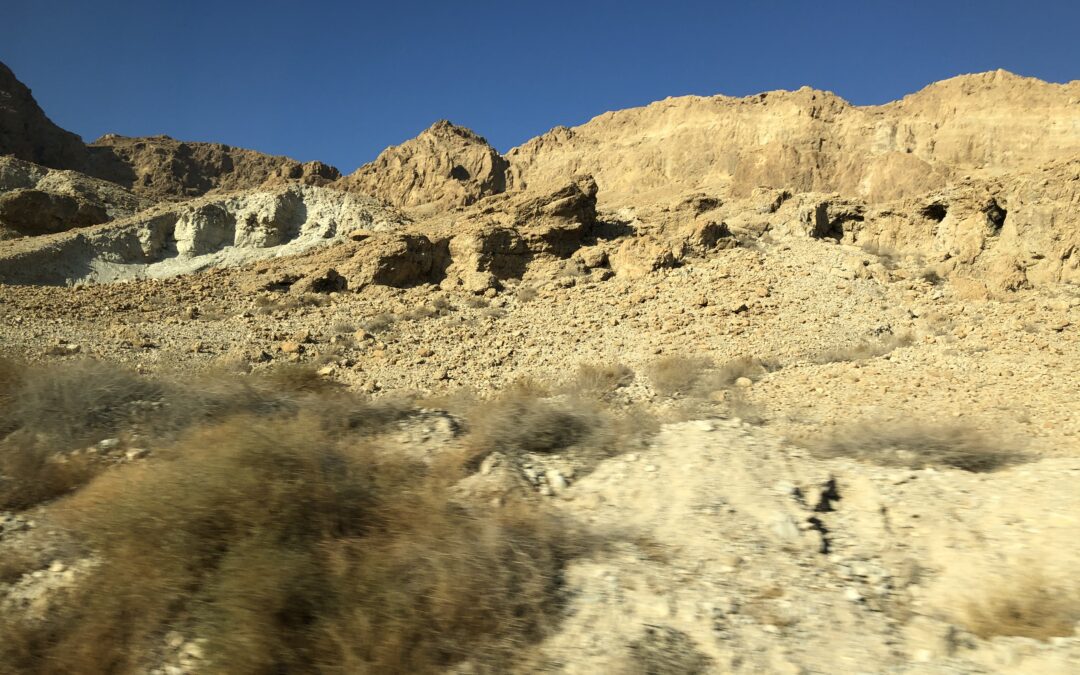There are very few things in life that don’t seem better after a good night’s sleep, or even after a nap. While not everyone wakes up in the morning ready to bounce out of bed and start the day–and I so appreciate the invention of the snooze button–the scientific reality is that our brains and our bodies use the time when we’re sleeping and resting to do some wonderful things. For example, the brain stores new information and gets rid of toxic waste. Nerve cells communicate and reorganize, which supports healthy brain function, and the body repairs cells, restores energy, and releases molecules like hormones and proteins.
Every morning, traditional Jews recite a prayer called the Asher Yatzar. Telling a group of fifth graders at a day school that it’s also called “the bathroom blessing” is a sure way to get a roomful of giggles. The prayer begins, Baruch atah Adonai, Elohaynu melekh ha-olam, asher yatzar et ha-adam b’chochmah.
Blessed are You, Adonai our God, Sovereign of the Universe, Who wisely formed the human being and created within it openings and hollows. It is obvious and known that if one of them were opened, or if one of them were blocked, it would be impossible to exist and stand in Your Presence even for a short while. Blessed are You, Adonai, Who heals all flesh and performs wonders.
The next blessing acknowledges that the soul that God put in me is pure, Elohai n’shama she-hatata bi t’hora hi. The late Debbie Friedman, who suffered from a serious autoimmune disease, spoke about how this prayer comforted her when her body simply refused to work the way the previous blessing had stated.
The human brain and body are amazing in their abilities to adapt to change, but we all know we can only push things so far before we start to have problems. If we don’t get enough sleep, or quality sleep, we have difficulty functioning at our best the next day. If this goes on long enough, it can lead to much more serious problems.
Just about everything benefits from some sort of “hitting the reset button,” or rest, including our earth and everything in it. In fact, the idea of letting the land rest appears in three places in the Torah, beginning with Exodus, 23:10 and 11:
וְשֵׁ֥שׁ שָׁנִ֖ים תִּזְרַ֣ע אֶת־אַרְצֶ֑ךָ וְאָסַפְתָּ֖ אֶת־תְּבוּאָתָֽהּ׃ וְהַשְּׁבִיעִ֞ת תִּשְׁמְטֶ֣נָּה וּנְטַשְׁתָּ֗הּ וְאָֽכְלוּ֙ אֶבְיֹנֵ֣י עַמֶּ֔ךָ וְיִתְרָ֕ם תֹּאכַ֖ל חַיַּ֣ת הַשָּׂדֶ֑ה כֵּֽן־תַּעֲשֶׂ֥ה לְכַרְמְךָ֖ לְזֵיתֶֽךָ׃
Six years you shall sow your land and gather in its yield; but in the seventh you shall let it rest and lie fallow. Let the needy among your people eat of it, and what they leave let the wild beasts eat. You shall do the same with your vineyards and your olive groves.
Then, in parashat B’har, which means, “On the mountain,” God tells Moses, speak to the Israelite people and say to them: When you enter the land that I assign to you, the land shall observe a sabbath of the LORD. Six years you may sow your field and six years you may prune your vineyard and gather in the yield. But in the seventh year the land shall have a sabbath of complete rest, a sabbath of the LORD.
Finally, in Devarim, Mikketz sheva shanim ta-aseh Shmita. Every seventh year you shall practice release of debts, which in an ancient agricultural society, usually meant land debt.
This seventh year is known as the Shmita year, the verb “shamat” means to release or to allow to rest. The Torah doesn’t quite hit us over the head with it, but the purpose of Shmita is to push the reset button, to allow the land to be replenished, to level the playing field and allow people to get back on their feet.
Letting the land tish’m’shena u n’tashtah, rest and lie fallow, means that fields aren’t cultivated; no planting or harvesting is done. The fields, olive groves and vineyards are open to all–rich and poor–to come and eat what the land produces on its own. It’s also a reminder that the land doesn’t belong to us people, it belongs to God, and we are, effectively, tenant farmers.
Of the 613 commandments that Maimonides recorded from the Torah and classified, 21 pertain to the Shmita and Jubilee years, and they only apply in the land of Israel itself. But over the past several decades, Israel has seen her economy transition from being supported by agriculture to being supported by high tech. The concept of Shmita observance has had to change with that transition, just as Judaism itself has had to adapt to living in exile, outside of the land and in the absence of our central place of worship.
During the last Shmita year, 5775, or beginning with Rosh Hashanah 2014, many initiatives in Israel were created to connect non-farming Israelis with the Shmita concepts of rest and release. For example, major high-tech companies made non-proprietary technology available at no charge to entrepreneurs. Funds were created to help individuals get out from under debt.










0 Comments